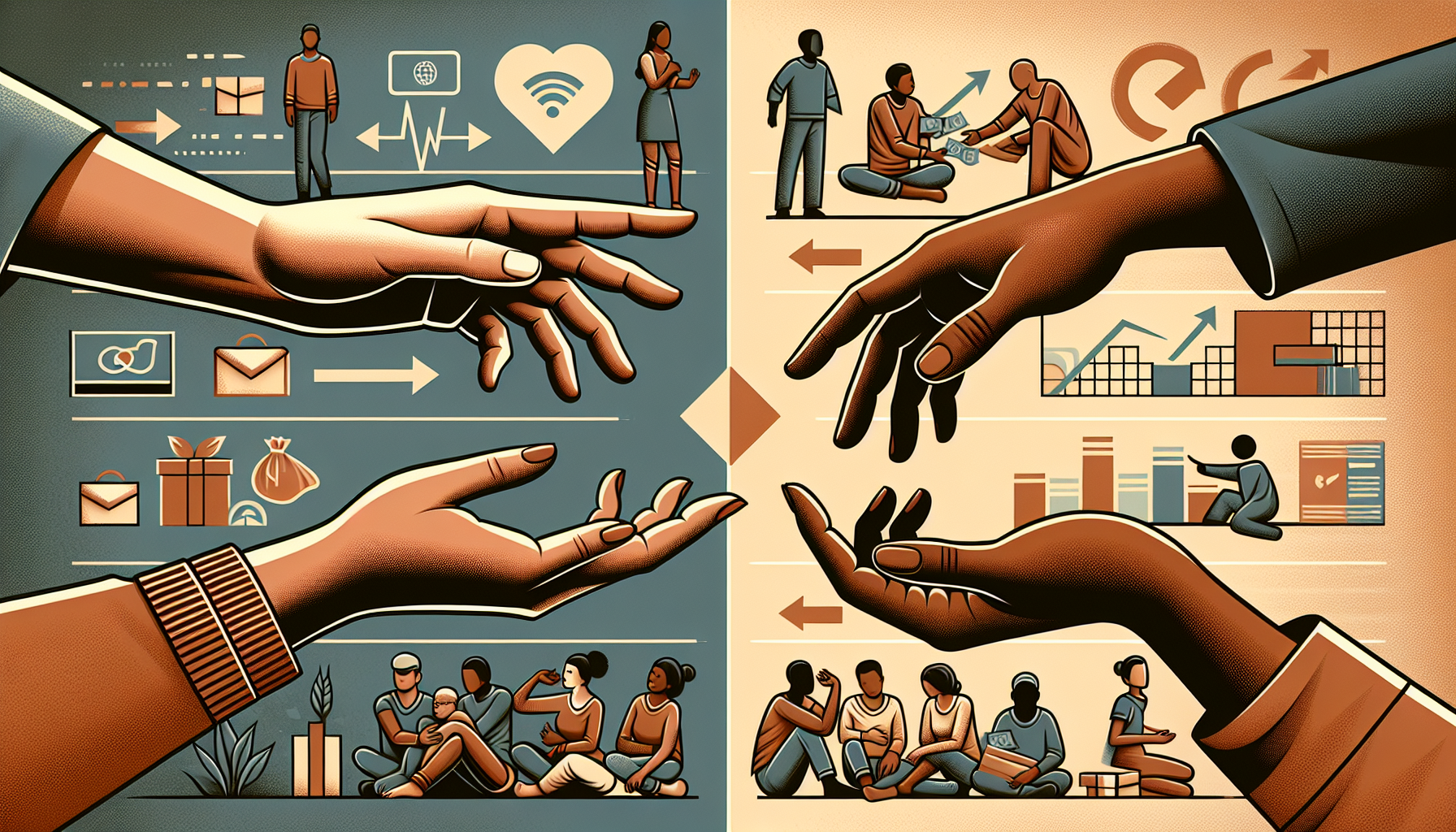The Evolution of Business: How New York Companies Adapted During the Pandemic

The pandemic forced many New York companies to rapidly pivot their business models to address changing consumer needs. Shake Shack, a well-known restaurant chain, exemplified this shift by moving to a primarily takeout and delivery model. They launched “Shack Track,” a service enabling customers to order online and pick up their meals with contactless service. This transformation not only helped sustain revenue during lockdowns but also catered to evolving consumer preferences for convenience and safety. By embracing this new model, Shake Shack demonstrated agility and foresight, which allowed them to retain customers and adapt to a shifting market landscape.
Embracing Technology
The pandemic significantly accelerated the adoption of technology across various sectors. Retailers, in particular, had to quickly integrate e-commerce capabilities to survive. Rent The Runway, a fashion brand known for its clothing rental service, successfully transitioned to a subscription model that allowed customers to rent clothes online. This digital transformation provided a crucial lifeline during the pandemic and positioned the company for future growth as consumers became increasingly accustomed to online shopping. By leveraging technology, Rent The Runway not only maintained engagement with its customer base but also set a precedent for innovation in the fashion industry.
Innovative Solutions for New Needs
The pandemic generated new market demands, and companies that swiftly identified and addressed these needs found opportunities for growth. Mask Up NYC, a local New York-based company, emerged as a crucial player in the personal protective equipment (PPE) space by producing stylish, reusable masks and donating a portion of their sales to healthcare workers. Their ability to pivot quickly from a traditional supply chain to meet urgent public health needs exemplifies the innovative spirit that characterized many businesses during this time. This response not only filled an immediate gap in the market but also reinforced brand loyalty among socially conscious consumers.
Community Engagement and Support
In addition to adapting their business models, many companies recognized the importance of community support during the pandemic. Warby Parker, an eyewear retailer, launched initiatives to donate glasses and provide essential services to frontline workers. By actively engaging with the community, these companies not only bolstered their reputations but also forged deeper connections with their customer base. Such community-focused efforts proved invaluable, fostering goodwill and loyalty that enhanced long-term business sustainability.
Challenges and Lessons Learned
Despite the innovative strategies employed by some, the pandemic presented significant challenges for many businesses, particularly in the hospitality and tourism sectors. The iconic W Hotel in New York City, for example, faced a steep decline in occupancy rates due to travel restrictions and health concerns. This crisis prompted a reassessment of their operational strategies, leading them to focus on promoting local tourism and staycations. The challenges faced by such establishments highlight the importance of adaptability and resilience, as well as the need for continuous evaluation of business strategies in the face of unforeseen events.
The COVID-19 pandemic acted as a catalyst for change within New York's business ecosystem, prompting companies to adapt swiftly and creatively. While some businesses thrived by pivoting their models and embracing technology, others faced significant challenges that required a reevaluation of their strategies. The resilience and innovation demonstrated by these companies offer valuable insights into the evolving nature of business in times of crisis. As New York continues to recover and rebuild, the lessons learned during this period will undoubtedly shape the future of its diverse and vibrant business landscape. The ability to adapt, innovate, and engage with the community will remain essential for success in the ever-changing world of business. Ultimately, the pandemic served not only as a challenge but also as a crucible for the evolution of business strategies in New York, setting a foundation for a more resilient future.
Digital Marketing Manager
Retail brands like Rent The Runway, tech startups, and e-commerce companies.
Core Responsibilities
Develop and implement digital marketing strategies to enhance online presence and drive customer engagement.
Analyze website traffic and user behavior using analytics tools to optimize campaigns and improve conversion rates.
Collaborate with cross-functional teams to create content that aligns with brand messaging and meets consumer needs.
Required Skills
Proficient in SEO, Google Ads, and social media marketing platforms.
Strong analytical skills with experience in A/B testing and data interpretation.
Excellent communication and project management abilities.
Business Development Specialist
Consulting firms, tech companies, and hospitality businesses like the W Hotel.
Core Responsibilities
Identify new business opportunities and develop relationships with potential clients to drive revenue growth.
Conduct market research to understand industry trends and competitor offerings.
Prepare and deliver compelling presentations and proposals to stakeholders.
Required Skills
Proven experience in sales or business development, preferably in a fast-paced environment.
Strong networking skills and the ability to build rapport with various stakeholders.
Proficiency in CRM software and Microsoft Office Suite.
E-commerce Operations Manager
Fashion retailers like Rent The Runway, consumer goods companies, and start-ups.
Core Responsibilities
Oversee the day-to-day operations of e-commerce platforms, ensuring a seamless customer experience.
Manage inventory levels, order fulfillment, and logistics to meet customer demands efficiently.
Collaborate with marketing teams to implement promotional strategies that enhance online sales.
Required Skills
Experience with e-commerce platforms such as Shopify or Magento.
Strong organizational and problem-solving skills, with a focus on optimizing operational efficiency.
Familiarity with supply chain management principles.
Community Engagement Coordinator
Nonprofits, socially conscious brands like Warby Parker, and local businesses.
Core Responsibilities
Develop and manage community outreach programs that align with the company's social responsibility goals.
Build partnerships with local organizations to support community initiatives and brand visibility.
Organize events and campaigns that engage the community and enhance brand reputation.
Required Skills
Strong communication and interpersonal skills to effectively work with diverse groups.
Experience in event planning and project management.
Background in nonprofit work or corporate social responsibility is a plus.
Supply Chain Analyst
Retail companies, manufacturing firms, and healthcare organizations.
Core Responsibilities
Analyze supply chain processes to identify areas for improvement and cost reduction.
Monitor inventory levels and forecast demand to ensure timely product availability.
Collaborate with vendors and logistics partners to streamline operations and enhance efficiency.
Required Skills
Proficiency in data analysis tools and supply chain management software.
Strong analytical thinking and problem-solving abilities.
Excellent communication skills to liaise with various departments and external partners.


